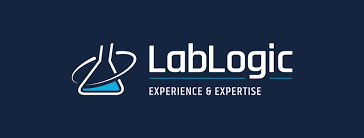For her PIPS, Carmen worked at a Sheffield-based international company called LabLogic who specialise in manufacturing and servicing instruments for nuclear radiation detection for medical, pharmaceutical and research applications.
The featured image is of the LabLogic logo.
What did you do?
My tasks were varied and I worked closely with the R&D team to test new prototypes for different nuclear radiation detectors. For instance, I tested several prototypes for detector probes that are used during breast cancer surgery to locate sentinel lymph nodes after the patients have been injected with Technetium-99. I also tested a new type of detector for an instrument used in pharmaceutical and research fields to analyse the purity of compounds labelled with radioactive isotopes. At times, I helped the production team qualify instruments before they were shipped off to customers around the world. For each of the projects that I was involved in, I wrote reports of my analyses and attended meetings where my data were discussed and used to inform the next steps in instrument design.
What made you want to do that particular placement?
Initially when I started searching for PIPS hosts, I was looking for local companies with ties to the medical or research fields. I saw on LabLogic’s website that they specialise in nuclear radiation detectors and that seemed very appealing to me as a large part of my PhD has involved work with radioisotopes. I also noticed on their website a “customer review” video featuring my secondary supervisor, Dr Dan Bose. Dan told me he had a good experience with LabLogic in the past and encouraged me to contact them.
How did you go about finding and planning your PIPS?
I emailed the contact address on LabLogic’s website and the head of R&D, Tom, who eventually became my supervisor, got back to me and arranged an in-person meeting to visit the headquarters. While there, I was shown around all the instruments they manufacture and introduced to the team and afterward we discussed their ongoing projects and how I could contribute during a 3-month placement.
What have you gained from doing your PIPS?
The PIPS experience helped me get a better appreciation of what working in industry could be like and I feel more encouraged to pursue a non-academic career now. I have gained more confidence in my transferable skills, which I successfully applied during the placement when setting up experiments, analysing results or producing figures and reports to share my findings. This experience also provided me with a better understanding of the many steps necessary in taking a product from concept to market, especially in such a highly regulated environment such as nuclear medicine and pharmacology.
How would you sum up your PIPS experience?
I had a very good time during my PIPS, thanks in particular to the very friendly and welcoming team who made me feel at ease early on. It was interesting and refreshing to learn about a different field to my own and focus on other challenges than the ones I was used to encountering in the lab and I am grateful for the opportunity to do a PIPS.
What advice would you give to other PGRs about PIPS?
Before you contact a company for the PIPS, ask others who have been involved with that company about their experience. Working with a friendly team is in my opinion just as important as the project, because it defines how welcomed you feel at the company and affects your overall experience a lot.
Don’t be put off by the thought of taking 3 months away from your project, it will be useful to come back to the lab with fresh eyes and see your experiments in a new light.

